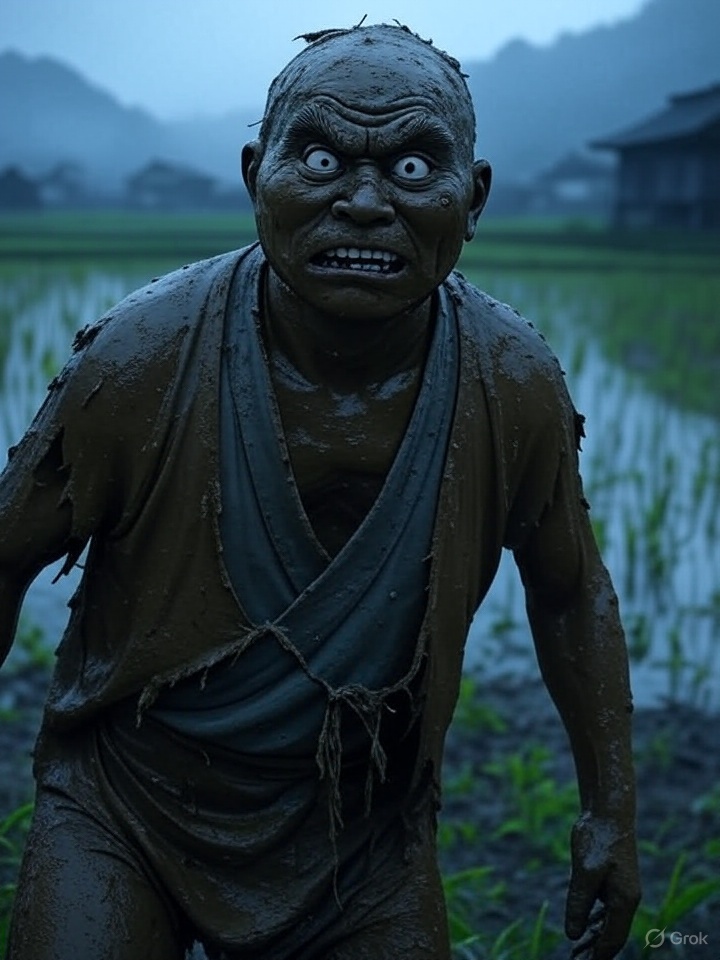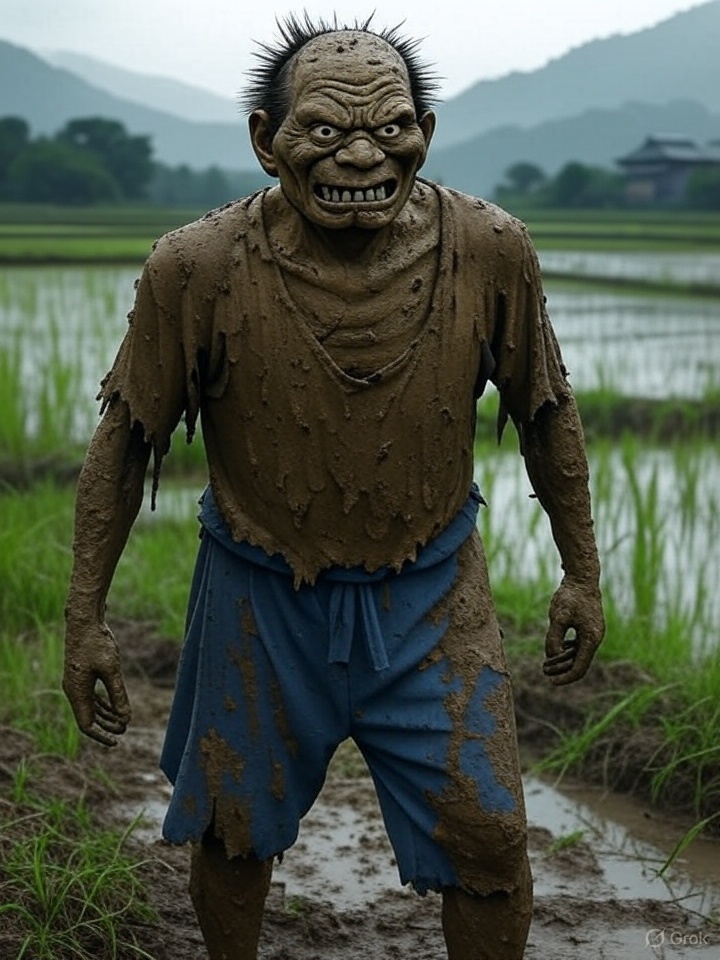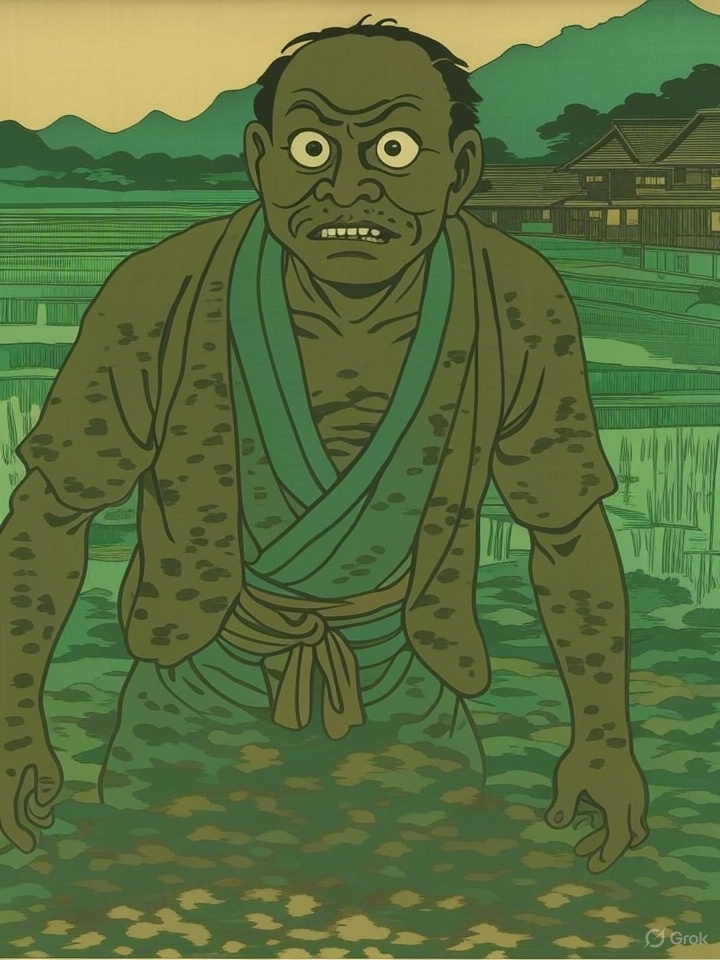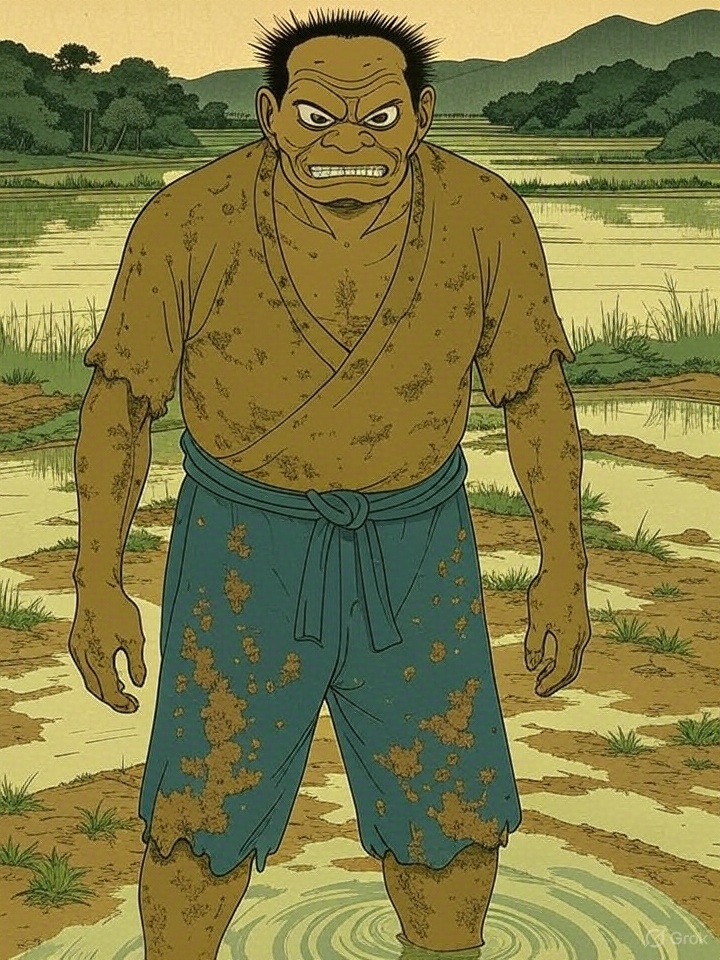Name Meaning
Overview
Dorotabō (泥田坊) translates to "muddy rice field monk" or "mud field man." This yokai is the spirit of a farmer who returns from the grave, sorrowful and enraged over the loss of his beloved fields.
- Doro = Mud
- Ta = Rice field
- Bō = Old man or monk-like figure
Origin
- Commonly featured in Edo-period ghost stories.
- Appears in rural folklore, especially in farming villages where land inheritance was vital.
- Symbol of ancestral resentment and rural decline.
Appearance
- Usually depicted as a mud-covered old man with one eye and clawed hands.
- Emerges from the fields at night, dripping with filthy water and croaking miserably.
- Shouts "Give me back my rice field!" into the darkness.
Behavior & Myths
- Only appears in neglected or cursed fields, particularly those sold off by irresponsible heirs.
- Haunts those who fail to respect their ancestors or maintain family land.
- His cry is said to bring misfortune or poor harvests.
Symbolism
- Represents the connection between land, ancestors, and tradition in rural Japan.
- A warning about neglect, greed, and failure to honor one's duties.
- Seen as a cautionary tale told to younger generations.



